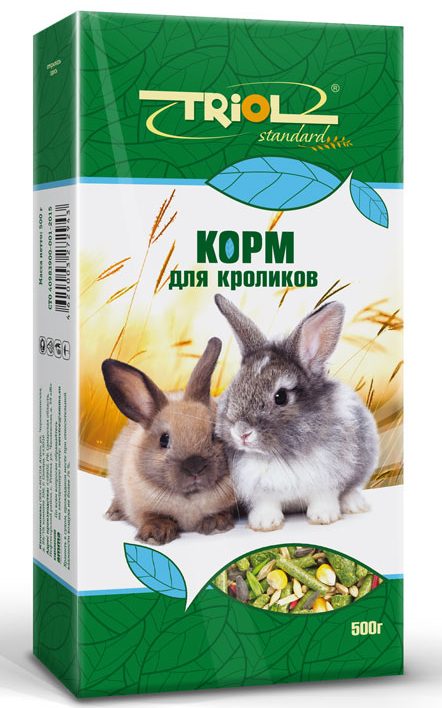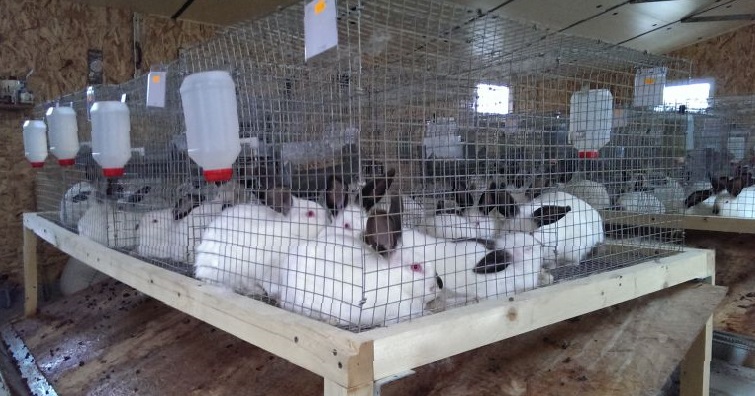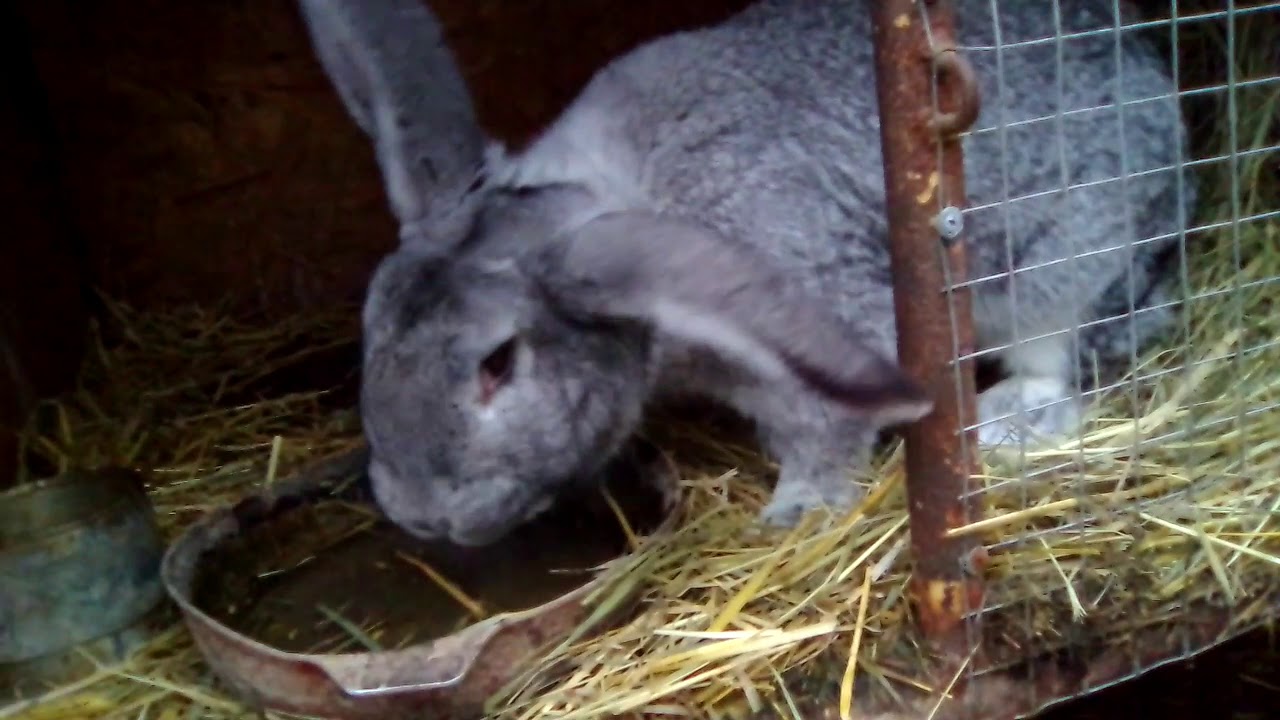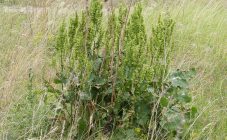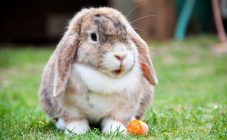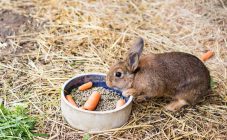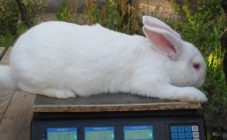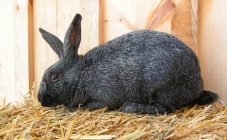Content:
The successful breeding of rabbits depends a lot on the quality and quantity of food they consume. Providing uninterrupted feeding of the animals can help to accelerate their weight gain.
Rabbit feed
The most common foods for rabbits include:
- Oats. Animals willingly eat grain flattened or crushed. Among other feeds, oats are considered the most complete, when fattening gives good results.
- Pulses. This includes fodder beans, soybeans, peas, and rank. Foods are very high in protein, but large amounts can cause bloating. The grains are pre-crushed and soaked. They are given to animals only in mixtures with soft foods and small portions. Per day, the consumption of pulses should not exceed 40-45 g per adult.
- It is very useful to give the animals food of animal origin: blood and meat and bone meal. They contain huge reserves of phosphorus, protein, calcium. And the rabbit feeding the cubs will drink milk with pleasure.
- Lack of hay can be compensated for with millet or oat straw. From the beginning of summer, you need to take care of branch feed.
- It is necessary to feed the rabbits with juicy forages: sugar beets, Jerusalem artichoke, cabbage, carrots, potatoes, melons.
- Juicy silage and fresh grass are very useful for animals. Rabbits eat nettle, burdock, bedstraw, dandelion, yarrow, peonies and lovage greens well.
Feeding rabbits for weight gain
Young animals are planted for regular fattening at two months. In addition to the obligatory concentrated feed, the eared should receive clean grains and legumes.
For enhanced fattening, rabbit breeders use additional methods. The most important factors influencing the rapid weight gain of an animal are noted:
- Correct grouping. The animals are sorted by physical characteristics - weak individuals are sorted out separately. In this case, when distributing food, strong animals will not dominate and leave others hungry.
- Space limitation. Individuals selected for fattening are kept in small cages, limiting their mobility, which contributes to weight gain.
- The feeder should not be empty so that the eared can eat at any time.
If rabbits do not gain weight well, then the cage is darkened. Since the animals are nocturnal animals, in the dark their appetite increases and their weight gain increases.
What to feed rabbits for fast growth and weight? It is recommended to feed the animals with the following products:
- boiled potatoes, corn cobs, cucumbers, tomatoes are added to the basic diet;
- tops are fed to the animals (except for tomato and potato);
- a mandatory component for enhanced feeding is wheat bran (they are mixed with boiled potatoes);
- very good help to gain weight meal and cake (the best of them are considered from sunflower, soy, flax).
High-quality rabbit meat is obtained by feeding rabbits with food waste: bread, vegetable peelings, cereals. Dry bread and cereals are often diluted with milk. This mash is combined with complex supplements, thus providing increased appetite, good growth and appearance of the animal.
Broiler feeding
For fattening, it is better to use rabbits of a special direction - meat. They are characterized by fast growth and well-developed muscles. There are also differences among meat breeds:
- fat content of meat;
- productivity;
- taste qualities.
Broilers are considered the most promising. When fattening, the diet should be changed in stages:
- Preparatory. The animal needs to be fed with the highest calorie food, but the amount of greens should not be reduced. The rate of concentrated species should be increased by half.
- Main. Purposefulness - the formation of adipose tissue. During this period, pets are given foods high in fat. These are hemp and flax seeds, oilcake, cereals with the addition of milk. In no case should you exceed the rate of fat consumption, otherwise a weak stomach may break loose. Fat feeding lasts a week.
- Final. What to feed rabbits for rapid weight gain during this period is the maximum feed rate. Animals must eat constantly. To increase appetite, spicy herbs and root vegetables are added to the rabbit diet: parsley, celery, caraway seeds, dill. Water is also salted. Greens and hay are categorically contraindicated.
Rabbit Supplements
The lack of vitamins will instantly affect the health of animals, causing pathological changes. Novice breeders often face a problem when rabbits do not grow and do not know what to do.
Cessation of growth, lethargy, a tortured appearance, decreased appetite are a clear sign of a lack of vitamin B.
With vitamin D deficiency, females can shed their offspring, and the surviving babies will be sick with rickets. The rabbits interrupt the feeding of the cubs, as lactation stops, the paws of the adults are twisted.
To eliminate and prevent avitaminosis, animals are given chiktonik, and feeding is increased. As a dietary supplement, rabbits are fed foods rich in vitamins:
- A - fresh fruits and vegetables, green food;
- B1 - sprouted wheat. Fresh potatoes, yeast;
- B2 - silage, bran, dairy products;
- B12 - algae, seaweed, bone meal and fish meal;
- D - Fish oil.
Rabbits gain weight poorly: what to do
If, with a sufficient amount of complete food, rabbits still gain weight poorly, use special compounds.
Synthetic and natural preparations are produced. Some, due to their nutritional value, build up mass, others - accelerate metabolism, as a result of which food is better digested and absorbed.
Fos-Bevit is a complex stimulant, which includes:
- Butafosfan - is aimed at increasing mass. Normalizes the metabolism of minerals, ensures the development of bone tissue, tones the body;
- Folic acid is an excellent building material for complex compounds, a stimulant for the formation of red blood cells;
- Cyancobolamine - participates in the formation of bone marrow, supports the nervous system.
Nucleopeptide - consists of tissue components and spleen cells. In the animal's body, it increases the rate of metabolism of proteins, fats, carbohydrates. As a result, food is absorbed almost completely.The animals grow and develop faster, the feeding time is reduced.
Mikrovitam is a dietary supplement containing all types of amino acids.
Flavomycin - after its use, the digestibility of feed increases significantly.
Rabbits grow poorly
The most active growth in rabbits occurs up to 3 months. During this period, the daily gain is about 40 g. In the fourth month, the gain is almost halved, and after 4 months the animals do not grow.
The lack of adequate nutrition does not always slow down the development of pets. There are also two other reasons why rabbits do not grow: intestinal coccidiosis and helminths.
Animals that have helminths lag behind in growth and stop gaining weight. The eggs of the worms penetrate the animal's body with food or hay. In the intestines of the animal, eggs are converted into worms. The grown parasites infest the host's organism with larvae. The food for the helminths is the food consumed by the rabbit and the cells of its body. The animal consumes a lot of food, but it stops growing and withers. You can determine the presence of helminths by taking tests. After establishing a positive diagnosis, the rabbits undergo a course of deworming.
Feeding farm rabbits is popular. Rabbit meat as a dietary meat is in demand, it is especially useful for patients with kidney and heart defects.
